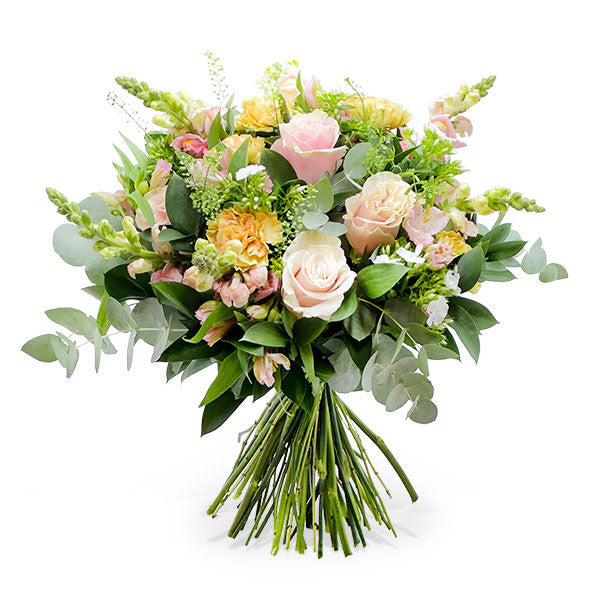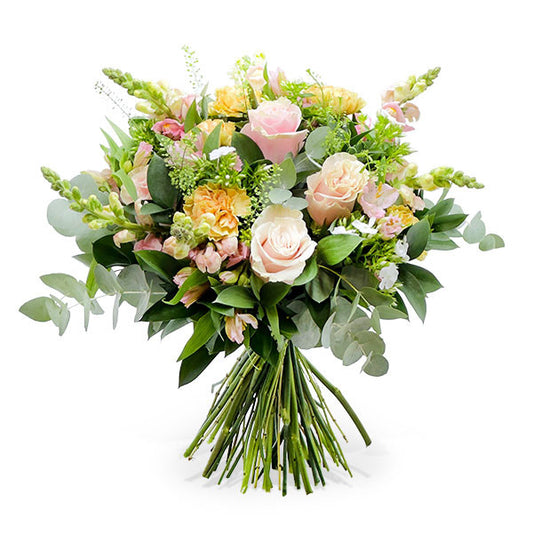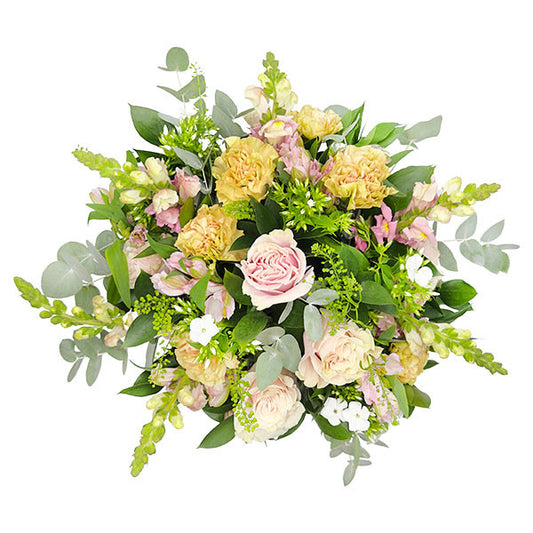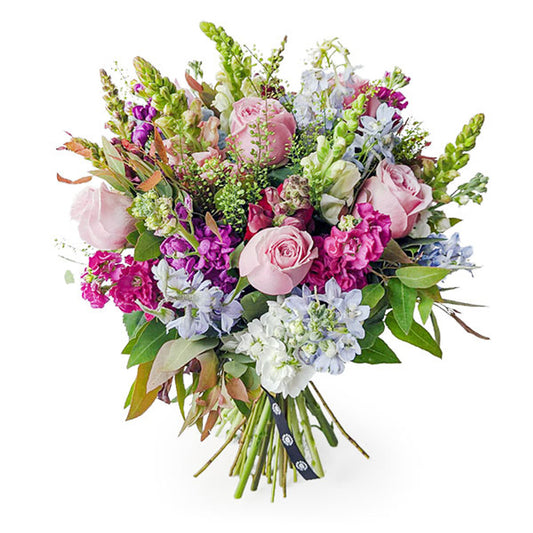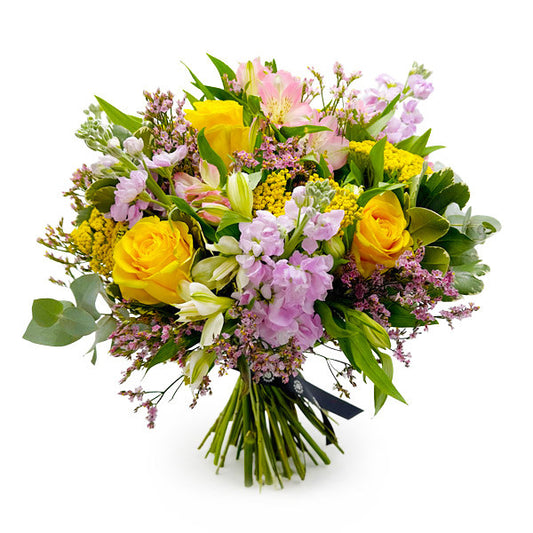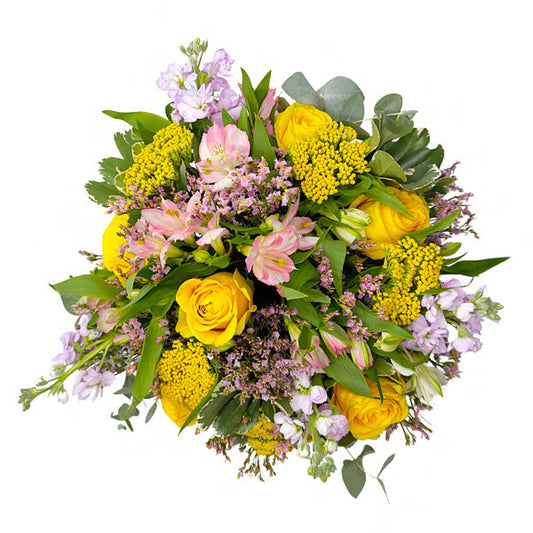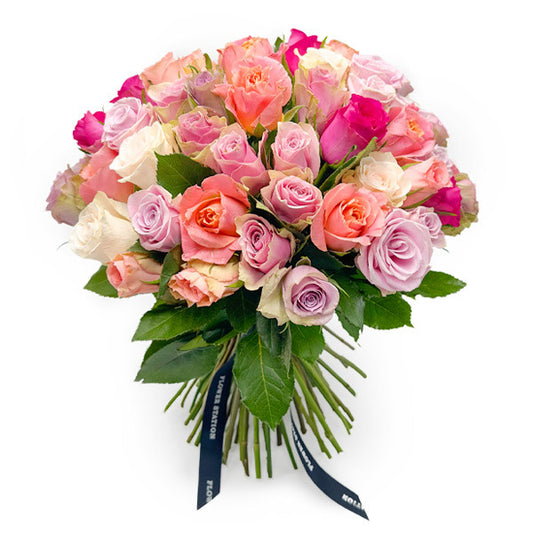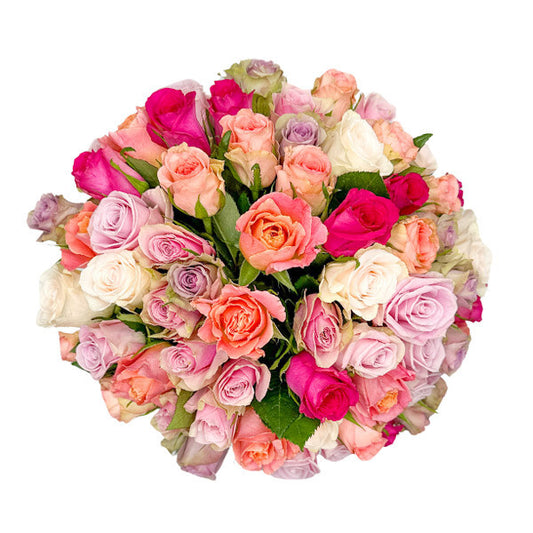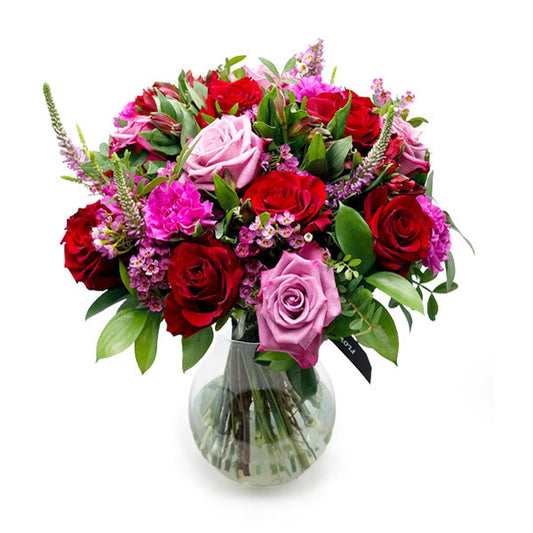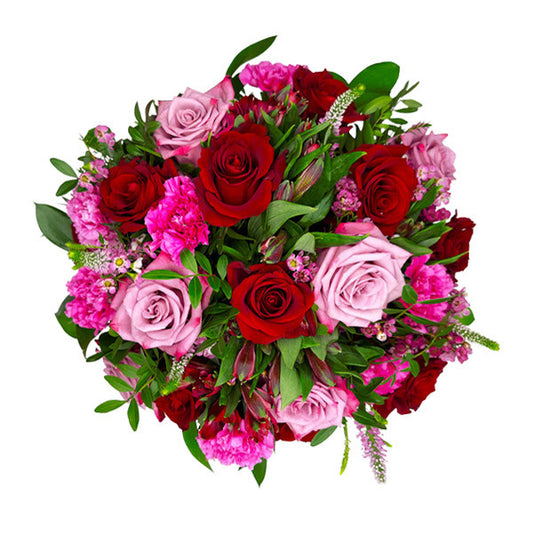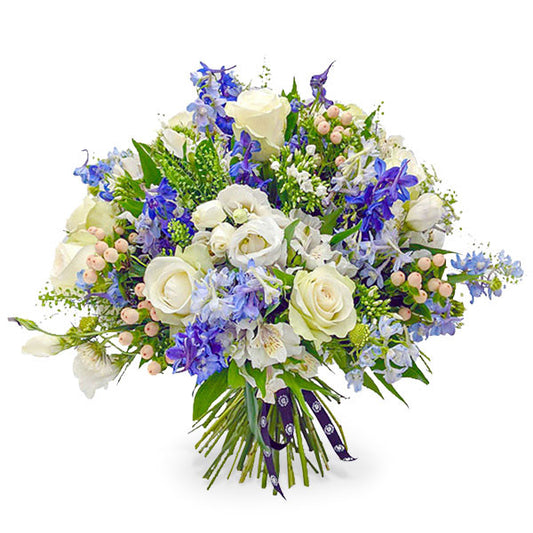Flower Care Tips
A quick guide on how to care for your flowers
Follow these easy steps to ensure you make the most of your bouquet. As simple as this!

Place
Choose an appropriate place for your flowers. Avoid direct sunlight and cold draughts, as well as any ripening fruit - find a suitable container for your blooms.
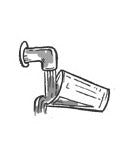
Wash
Make sure to use a clean container (glass, plastic or metallic are all fine) or better yet, thoroughly wash it with soap prior to use.

Fill
Fil the container with fresh, room temperature water until it is two-thirds full. There should be enough water to submerge all the stems without liquid overflowing.

Add
Mix flower food with the water before placing your flowers in the container. If flower food is not available, use sugar - it is essentially the same thing!
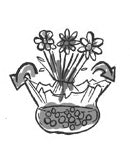
Remove
Remove your flowers from the pack. Do not re-use the water or gel bubbles in the pack - you can dispose of them with your biodegradable garden waste.

Clean
Clean off any damaged blooms, leaves or foliage that fall below the vase waterline. If left they will disintegrate and cause the water to turn brown.

Cut
Always cut the stems at a 45 degree angle before placing them into water. This maximizes the amount of water the flowers can draw through their stems.

Care
Check your flowers on a daily basis. Check for wilting heads, replace the water, re-cut the stems and clean the container every two to three days.

Enjoy
All good things come to an end; make sure to follow these few simple instructions to ensure the longevity and beauty of your flowers.
Special Tips for Special Flowers

Roses
To maximise the longevity of your roses, avoid keeping them close to fruit and vegetables, especially apples. The ripening fruit lets off small amounts of ethylene gas which can accelerate aging of flowers - find a well ventilated spot away from direct sunlight to achieve the perfect balance.
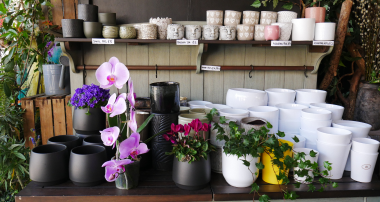
Orchid
Orchids often suffer from over-watering. Be sure to keep your orchid plant healthy by using the ice-cube watering technique. Simply place an ice cube directly onto the orchid roots and leave it to melt. This will help to improve water absorption and prevent root-rot.
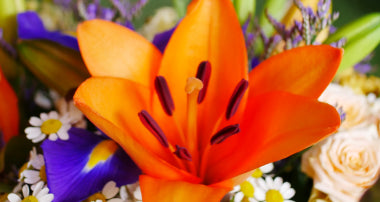
Lilies
Lilies are notorious pollen producers - to avoid damage to the delicate petal fibres and ensure that your lilies remain fresh for longer, it is advisable to carefully pluck the pollen from each of the stamens, taking care not to allow the pollen to touch the petals.
